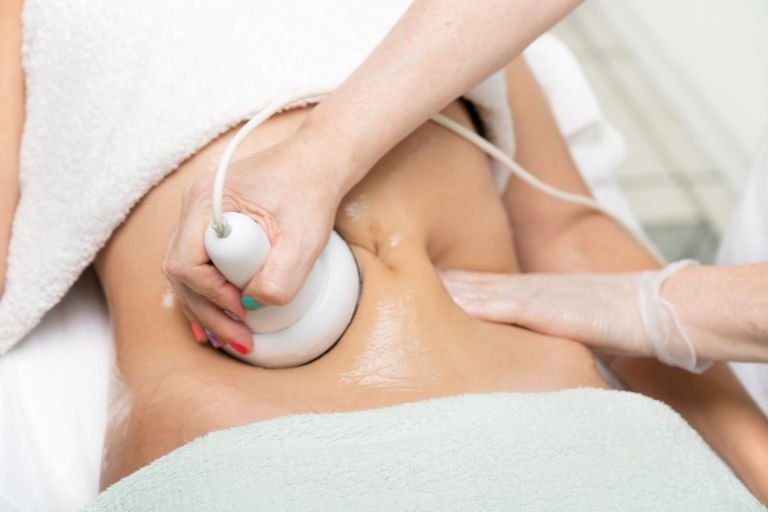- Fitwell Physiotherapy
Dry Needling Therapy

Dry needling therapy is a technique used by healthcare professionals, typically physical therapists, to treat musculoskeletal pain and movement impairments. Here’s an overview of dry needling therapy including types, benefits, and how it compares to moist heat therapy:
Please submit your details below.
Types of Dry Needling
Superficial Dry Needling: Needles are inserted just below the skin’s surface. This type is often used for patients who are new to the therapy or have a low tolerance for pain.
Deep Dry Needling: Needles penetrate deeper into the muscle tissue, reaching the trigger points directly. This approach is more intense and typically used for chronic conditions or severe pain.
Intramuscular Stimulation (IMS): A specialized form of dry needling developed by Dr. Chan Gunn, focusing on neuropathic pain caused by muscle shortening.
How Dry Needling is Performed
Assessment: The therapist conducts a thorough examination, identifying the specific areas needing treatment based on the patient’s pain and symptoms.
Preparation: The patient is positioned comfortably, and the skin is cleaned to prevent infection.
Insertion: Using sterile, disposable needles, the therapist inserts the needles into the targeted trigger points. The depth and number of needles depend on the condition being treated.
Manipulation: Once the needles are in place, they may be gently manipulated, left in place for a few minutes, or moved around slightly to achieve the desired therapeutic effect.
Removal: Needles are carefully removed, and the treated area is often massaged to promote relaxation and blood flow.
Contraindications
Dry needling is generally safe but not suitable for everyone. Contraindications include:
- Bleeding disorders: Patients with clotting issues or on blood thinners should avoid dry needling due to the risk of excessive bleeding.
- Pregnancy: Especially in the first trimester, as it may induce contractions.
- Infections: Active infections at the needle site or systemic infections.
- Compromised immune systems: Increased risk of infection.
- Allergies to needles or metal: Rare but possible, requiring an alternative treatment approach.
What to Expect
During the Session:
- Mild discomfort or a “twitch” response when the needle hits a trigger point.
- Possible sensations of aching, tingling, or muscle spasms.
- Sessions typically last 20-30 minutes, depending on the condition being treated.
After the Session:
- Mild soreness or bruising at the needle site.
- Relief from pain and improved range of motion, often noticeable immediately but more evident after 24-48 hours.
- It’s common to experience a “healing response,” where symptoms temporarily intensify before improving.
Benefits
- Pain Relief: Effective for chronic pain conditions such as fibromyalgia, back pain, and headaches.
- Improved Mobility: Reduces muscle tightness, enhancing joint movement and flexibility.
- Enhanced Recovery: Accelerates healing by increasing blood flow and reducing inflammation in the affected areas.
- Muscle Function: Restores normal muscle function by deactivating trigger points.
- Holistic Health: Complements other treatments like physical therapy, chiropractic care, and massage therapy for comprehensive care.
Conclusion
Dry needling is a versatile and effective treatment option for various musculoskeletal conditions. By targeting specific trigger points, it helps alleviate pain, improve mobility, and enhance overall physical function. However, it is essential to undergo this therapy under the guidance of a trained professional, ensuring safety and maximizing the therapeutic benefits.
Frequently Asked Questions
Dry needling therapy involves the insertion of thin needles into trigger points or tight bands within muscles to alleviate pain and improve function. While it shares similarities with acupuncture in the use of needles, dry needling focuses on musculoskeletal pain management, targeting trigger points and tight muscles rather than traditional Chinese medicine meridians.
Dry needling therapy is commonly used to treat various musculoskeletal conditions, including but not limited to:
- Myofascial pain syndrome
- Neck pain
- Back pain
- Shoulder pain (e.g., frozen shoulder)
- Tennis elbow
- Sciatica
- Headaches and migraines
Sensations during dry needling therapy vary from person to person. Some individuals may experience minimal discomfort or a dull ache, while others may feel a temporary, sharp sensation when the needle is inserted into a trigger point. However, the discomfort is typically brief and subsides quickly after the needle is removed.
The number of sessions required depends on various factors, including the specific condition being treated, its severity, and individual response to therapy. While some people may experience significant improvement after just one session, others may require multiple sessions spaced over several weeks for optimal results. Your healthcare provider will develop a treatment plan tailored to your needs.
Like any medical intervention, dry needling therapy carries certain risks, although they are relatively low. Potential side effects may include temporary soreness at the needling site, bruising, bleeding, or, rarely, fainting. Infection is also a possible risk if proper hygiene and sterile needle technique are not maintained. It’s essential to undergo dry needling therapy from a qualified and trained healthcare provider to minimize risks and maximize benefits.
Related Therapies
How Fitwell Physiotherapy Can Help?
Dr. Richa’s Fitwell physiotherapy has an extensive team of physiotherapists all within their own specialist areas of physiotherapy. Whatever your condition, we guarantee that we will have the best physiotherapist for you. We assess, diagnose, plan, cure and care for you.
Fitwell Physiotherapy Clinic, Pune provides you best physiotherapy treatment in Kharadi, pune. We also serve Chandan Nagar, Vadgaon Sheri, Keshav Nagar, Wagholi & nearby Areas in Pune. We are experts in treating Neck Pain, Hand Pain, Back Pain, Lower Back Pain, Knee Pain, Stiff Neck, Sciatica, Arthritis, Stroke Paralysis & Post Surgical Rehab.
We provide Specialized physiotherapy treatments in Sports Injuries, Pre and post Surgery, Neurologic, Pediatric, Chronic Pain/Fatigue, Rheumatology, Women’s Health, Men’s Health, Ergonomics, Vestibular, Amputees & all sort of Pain treatment and lifestyle conditions.



























